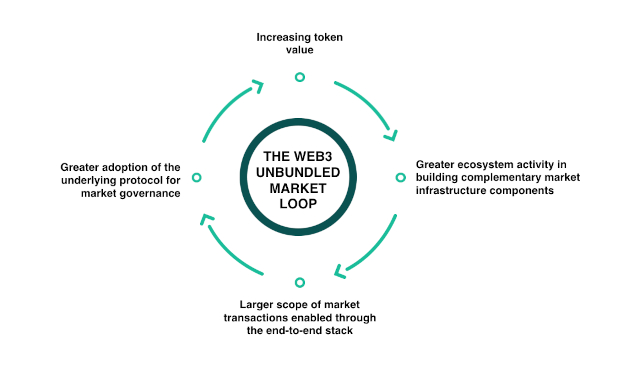[Photo by Sebastian Hietsch on Unsplash]
Good morning,
In Backable: The Surprising Truth Behind What Makes People Take a Chance on You, Suneel Gupta, who teaches innovation at Harvard University, shares a story to highlight why showing—instead of merely telling—is key to persuasion.
He writes, “a few months ago, inside the office of a venture capital firm, I met an extremely likable startup founder from New York who was pitching a new pizza-delivery app. As a customer, you could tap one button and get your favourite type of pizza delivered. The founder came from five generations of pizzeria owners. As he and I spoke in the conference room while waiting for the other investors to arrive, he showed me a photo of his great-great-grandfather, who had opened the family’s first pizzeria in a small town in Italy. I was immediately charmed by this guy. He had a thick Brooklyn accent, a genuine smile, and a sense of ease.”
However, as the investors came, Gupta noticed a huge shift in his style. “He pulled back his smile and pushed forward a more serious, solemn attitude. When he began going through his slide deck, his easy style seemed to evaporate… And though the slides were well designed and the content was strong, his delivery fell flat.”
Sensing that he is losing the investors, Gupta asked him if he could show the app on his phone. Gupta walked up and looked at the app over his shoulders. “One by one, the other investors slowly rose from their seats. That’s when the switch flipped. With all of us huddled around the founder’s iPhone, his energy replenished. His personality shifted back to how it was when he shared with me his family story. As he swiped to unveil the different features in the app, I saw the investors put away their phones and begin to ask questions. He had their interest, and a few weeks later, he got their investment.”
In this issue
- Why unbundling market infrastructure and market governance is important
- How Taliban used tech to its advantage
- Road signs for a polarized world
Why unbundling market infrastructure and market governance is important
In his newsletter, Platforms, AI and the Economics of Big Tech, Sangeet Paul Choudary makes a strong case for taking the power to govern markets away from those who build market infrastructure. In the Web2 world, he says companies such as Amazon, Ebay, Upwork and Uber built the market infrastructure and enforced market governance. That led to concentration of power, the consequences of which are becoming evident now. In the Web3 world, he argues, this has to change. “While the core components of market governance are encoded into the protocol layer, components of market infrastructure may be built by the ecosystem around the protocol.”
This has several advantages. Choudary lists five. One of them is the virtuous cycle that will come into operation when these two are unbundled. The following diagram captures that.

Choudary writes, “this unbundling of infrastructure from governance leads to a powerful virtuous cycle, which eventually makes unbundled market infrastructure and governance more powerful than the traditionally bundled market infrastructure and governance of Web2. While Web2 benefits from network effects in production, Web3 benefits from a mutually reinforcing cycle where greater adoption of the protocol for governance drives greater creation of marketplace infrastructure, which in turn reinforces the adoption of protocol. Once such a loop is set in motion, Web2 companies building market infrastructure within the boundaries of their firm will find it increasingly difficult to ‘catch up’ and compete, much like the traditional retailers of the past failed to catch up with Amazon’s seemingly endless catalogue.”
Dig deeper
How Taliban used tech to its advantage
In MIT Tech Review, Christopher Ankersen, clinical associate professor of global affairs at New York University and Mike Martin, a visiting war studies fellow at King’s College, London, write about the surprising technological advantage Taliban had over the US. One was the ability to set off roadside bombs, or IEDs, using mobile phones.
However, they write, “the real technological advance for the Taliban took place at the strategic level. Acutely aware of their past shortcomings, they have attempted to overcome the weaknesses of their previous stint in government. Between 1996 and 2001, they preferred to be reclusive, and there was only one known photo of their leader, Mullah Omar. Since then, though, the Taliban have developed a sophisticated public affairs team, harnessing social media domestically and abroad. IED attacks would usually be recorded by mobile phone and uploaded to one of the many Taliban Twitter feeds to help with recruitment, fundraising, and morale. Another example is the technique of automatically scraping social media for key phrases like ‘ISI support’—referring to Pakistan’s security service, which has a relationship with the Taliban—and then unleashing an army of online bots to send messages that attempt to refashion the image of the movement.”
Dig deeper
Road signs for a polarized world

(Via WhatsApp)
Found anything interesting and noteworthy? Send it to us and we will share it through this newsletter.
And if you missed previous editions of this newsletter, they’re all archived here.
Bookmark Founding Fuel’s special section on Thriving in Volatile Times. All our stories on how individuals and businesses are responding to the pandemic until now are posted there.
Warm regards,
Team Founding Fuel
(Note: Founding Fuel may earn commissions for purchases made through the Amazon affiliate links in this article.)


